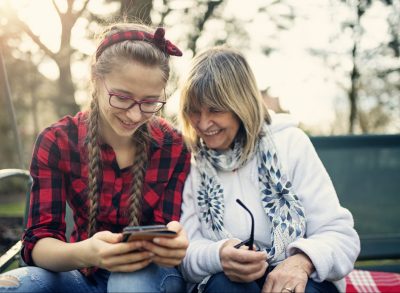This part of the website is for youth. You might need the help of a trusted adult to look at this or you might be able to look at it on your own.
Social Media
Do you have a tablet, laptop or phone? Even if you don’t, you might look at the devices your siblings or friends use. It can be fun to watch videos and look at photos and posts with a friend.

Websites and apps like Facebook, Instagram, Tik Tok and Snapchat are SOCIAL MEDIA. Social media can be a useful tool for communicating with your friends and family. But there are also some risks.
Social media can be fun, including using emojis. What do they all mean? Watch the video ‘What are they Saying’ to learn about some emojis people might use for social media.
Staying Safe Online
Here are some rules to keep you and others safe while using social media.
Porn (pornography)
Porn is pictures or videos that show naked people or sexual fantasies. Some people watch porn to learn about their sexuality. Sometimes people masturbate (touching and rubbing penis, scrotum, vulva, clitoris, breasts for sexual pleasure) while watching porn.
Real sex doesn’t feel like how sex in porn looks. Porn is about showing sexual fantasies with actors, scripts, special make up and computer editing. In real life, sex is about physically being with other people, with all of the fun and sometimes awkwardness of any relationship.
Like all media, porn doesn’t show real people’s sex experiences. Sometimes it shows unsafe sex, bodies or relationships. This might give people ideas about sex that are confusing. It might also make them feel bad about sex, their bodies or relationships. In real life, if people did the activities they see in porn, there could be damage to relationships and self-esteem. It might also put them at risk for STI (sexually transmitted infections), unintended pregnancy, sexual assault charges, and injury. Some porn is illegal and doing what is seen would also be illegal.
Safety Tips
- Watching porn is a choice.
- No one can make you look at porn on a phone, computer or in a magazine.
- You should never pressure anyone to watch porn.
- Watching pornography should always be done in private – not on the bus, at school or at work.
- If pornography is making you feel bad, you should talk to someone you trust.
Watch the video ‘Staying safe online’ to check what you know about using social media
Sexting
Sexting is when people send or receive sexual pictures, messages, or videos by cell phone or other wi-fi devices. Sexting is one way to communicate in a sexual relationship and explore sexuality.

‘Nudes’ are naked pictures of someone. Never assume sexts will stay private or are temporary. In Canada, sexting can be considered porn, especially if it contains images or videos. It’s illegal:
- for anyone under 18 to view/access/make/possess any porn
- to have, share or view porn if it shows people under 18
- to share someone’s sexual image without their consent
- to show someone a sexual image without their consent

